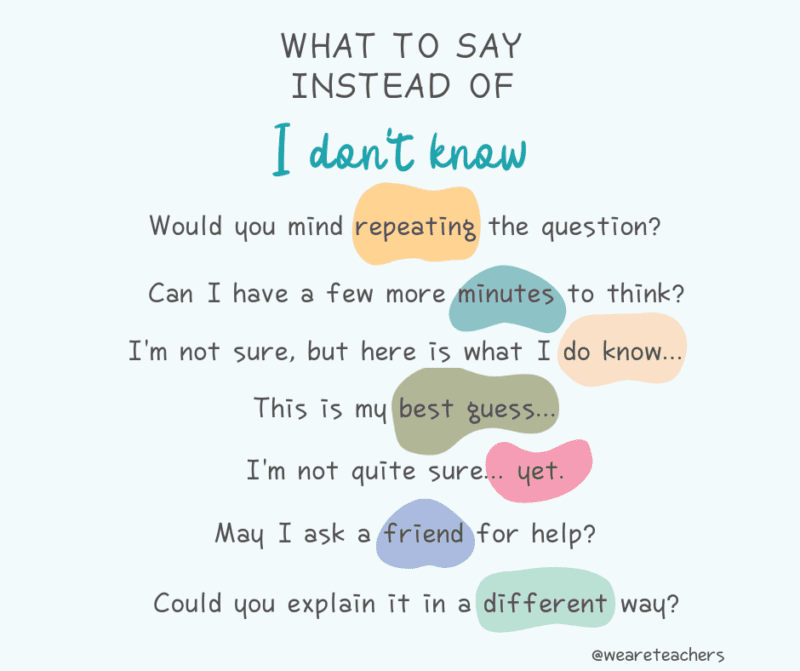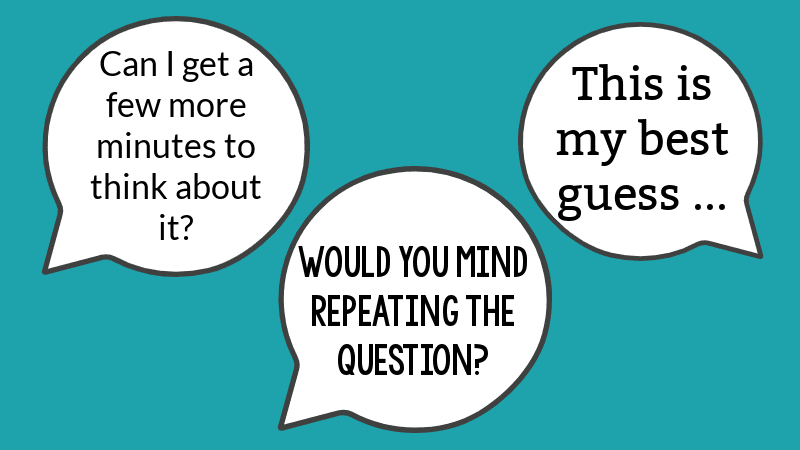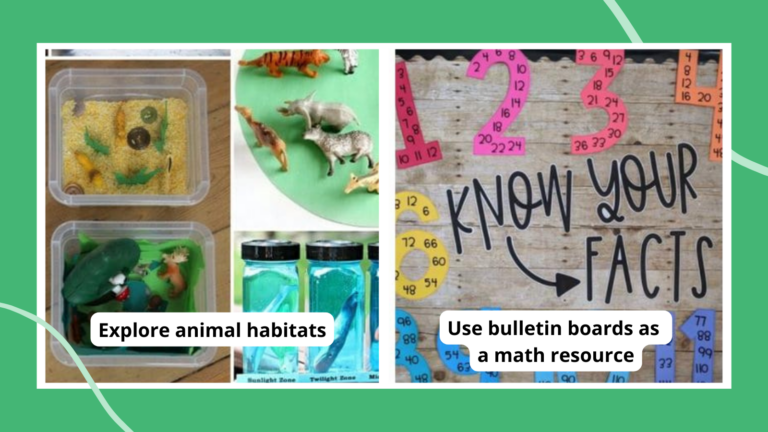I sometimes feel like kids give up too quickly these days. In my classroom, I find my students shoot out an “I don’t know” before I even finish the question or hand out the assignment! Let’s model for our kids how to be active learners by offering other things they can say instead. Here are 8 alternatives to “I don’t know”:
“Would you mind repeating the question?”
Everybody learns in different ways and at different paces. When posing questions to our students, we should try our best to make sure we write it as well as verbally ask it. Students need to know that it is more than OK to request that the question be repeated or that they be directed to a place where they can reread it themselves. This will help both auditory and visual learners process the question. Our brains need time to process, absorb, and interpret questions before even beginning to come to an answer!
“Can I get a few more minutes to think about it?”
I think we need to provide enough wait time when posing questions to students. Wait time is time that the teacher waits before calling on another student in class or for an individual student to respond. We must teach our students to advocate for their wait time if it isn’t given. We all learn and process information at different paces. As one of the alternatives to “I don’t know,” children must learn to allow themselves to sit and think! And that’s OK!
“I’m not sure, but here is what I DO know…”
Eighty percent of the time, the “I don’t know” doesn’t mean there is absolutely nothing the child knows about the topic at hand. Whether it’s digging deep into prior knowledge or the little bit that was gleaned from the lesson. Let’s encourage our students to pinpoint what they DO know to help figure out more specifically what they DON’T know. It’s almost like retracing your steps when you realize you lost something. Where was the last “place” things made sense? Where do you think was the point you got “lost”? That’s where we want students to backtrack.
“This is my best guess …”
Similarly, it’s OK to make an educated guess! Based on your prior knowledge, what do you think would make sense? Our job as teachers is to create classroom environments that encourage risk-taking! The more students feel comfortable failing, the less you will hear things like, “I don’t know.” There will be no reason for it! Model it as well. Find opportunities where you can tell your students that you really just don’t know, but why not make an educated guess! What’s the worst that could happen?
“I’m not quite sure … YET”
That three-letter word does so much for our brains. A student may not know the answer. But we want to encourage our learners to keep at it. Instead of throwing up their hands and giving up, “YET” shows themselves and the people around them that they aren’t done trying. And maybe they won’t ever come to the answer! Maybe the teacher will need to step in.! That’s fine. But something else happened along the way … perseverance.
“May I ask a friend for help?”
My professor in college once told me I should pretend that the conversation in my classroom was like a ping pong ball. He told me to pay close attention to the way it bounces. Is it back and forth from teacher to student most of the day? Does the ball bounce from student to student? Or does it always bounce back to the teacher? Is it bouncing mostly from one student to the teacher? The goal, he told me, is to keep the ball bouncing to everyone in the room equally. Students should be responding to other students with the teacher jumping in to facilitate and clarify when necessary. When students don’t know something, they must learn that help can come in other forms besides the teacher. Is there a friend they feel explains things well and differently than the teacher?
“Can you please explain it in a different way? / What does the word ______ mean?”
Are there words that don’t make sense that they would like to look up? Sometimes, we need to hear things in different ways and different forms. And it’s OK to ask for materials to be presented differently when they aren’t making sense.


